Bruxism is an unconscious movement disorder of the jaws characterized by clenching and grinding of teeth. It is particularly important to the dentist because bruxism results in damage to the surface of teeth and dental restorations, and can induce headaches and TMJ pain.
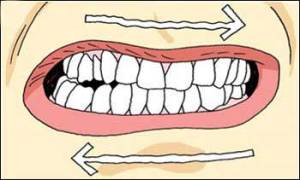
Bruxism can occur during sleep or in wakefulness. Awake bruxism is characterized by semi-voluntary clenching of the teeth during the day time. It is more commonly seen in females and is associated with life stresses and work pressure. Sleep bruxism does not show any gender pre-dominance and is classified as a sleep disorder.
Causes
Local/Peripheral factors:
Premature tooth contact – occlusal interference can become irritating and patients try to get rid of them by clenching and grinding the teeth, which can eventually become a habit.
Infants who rub their gums pads (before eruption of teeth) against each other may develop a habit of unconscious clenching later on

Central Factors:
Transient arousal state – sleep bruxism is associated with ‘arousal response’, that is a sudden change in the depth of sleep during which the individual is at a lighter sleep stage. Increased muscular activity, heart rate and gross body movements accompany such a state.
Neurological disorder – a disturbance in the equilibrium between the direct and indirect output pathways from the basal ganglia in the brain, involved in coordination of movements, could be a possible cause of bruxism.
Obstructive sleep apnea- 3 to 5 % of people with this disorder may show sleep bruxism.
Use of certain drugs – Amphetamines and long term use of dopamine antagonists (such as in psychiatric patients) enhances daytime bruxism.
Smoking – nicotine in cigarettes stimulates central dopaminergic activity, which in the long term leads to bruxism.
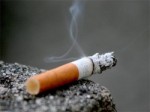
Psychological factors:
Emotional disturbance – expression of anxiety, anger and aggression may lead to clenching and grinding of teeth
Mental stress and depression
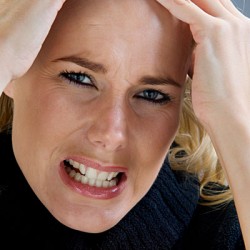
Consequences
Extensive occlusal wear facets
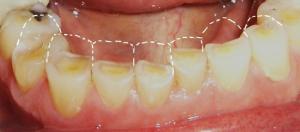
In extreme cases, loss of alveolar bone and mobile teeth
Headache
Pain and stiffness in masticatory, neck and shoulder muscles
Hypertrophy (enlargement) of masticatory muscles
Pain and instability in TMJ
Treatment
Sleep hygiene: avoid consumption of coffee, tea, chocolate, alcohol, and cigarettes 4 to 6 hours before bed. Also avoid watching television and heavy exercise before going to bed.
Correction of any premature tooth contact or defects in dental restorations.
Bite plate/night guard: a splint covering the occlusal surfaces at night maybe given to a patient with bruxism. It may not resolve the problem, but it will help prevent tooth wear.
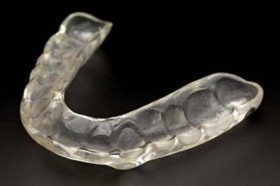
Medication: a range of drugs has been suggested for pharmacological treatment such as Zolpiden, Anti-depressants (like amitriptilyne), Anti-convulsant agents (like gabapentine), Clonazepam, Dopaminergic agents
 (like bromocriptine), Muscle relaxants (like baclofen) and botulinum toxin (Botox).
(like bromocriptine), Muscle relaxants (like baclofen) and botulinum toxin (Botox).Hypnotherapy: hypnosis is used to induce sufficient relaxation.
Biofeedback: it is a relaxation technique in which the patient observes and controls the physiological functions that are monitored by special equipment called EMG detector. The patient receives a training to detect their adverse jaw muscle activities and gradually becomes able to control them.
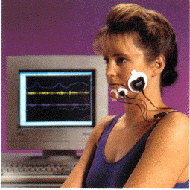
References
Aloe, F. (2009). Sleep Bruxism Treatment. Sleep Science. 2 (1), 49-54.
Schuurs, A. (2013). Pathology of Hard Dental Tissues. Sussex,UK: Wiley-Blackwell. 201-203.
Shetty, S. (2010). Bruxism: A Literature Reviw. J Indian Prosthodont Soc. 10 (3), 141-148
Read also Dental Implant in Smart Village
Register here For more information & diplomas
Contacts: 9 abbas el-akkad street, nassr city, Cairo, Egypt
Tel: (+202) 24010655
Cell phone: (+2) 01143050023
Call phone: (+2) 01024212175
E-mail: info@spc-eg.com
ليست هناك تعليقات:
إرسال تعليق